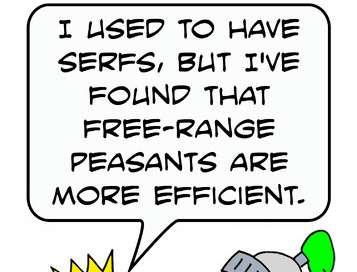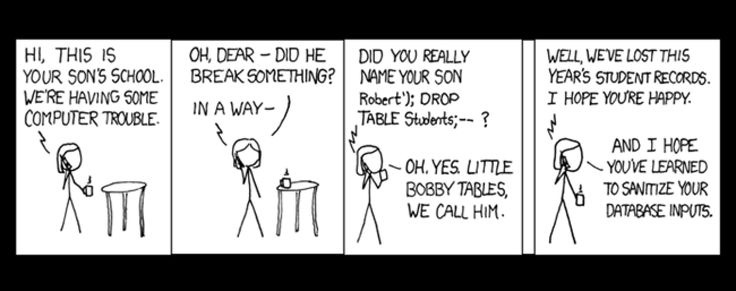Raoul Pal made some news because of a comment on his channel, Real Vision, where he explained to the interviewer that he sold Bitcoin because the people there were being mean and he liked buying Ethereum because the people there were lovely to him. As many have pointed out, this doesn’t seem like a great metric for making decisions. People being nice or mean is not a bad way to determine a neighborhood to live in or a church to attend, but it doesn’t seem like a great investment strategy. After all, some of the best investments have had the meanest people and some of the worst investments (scams) have had the nicest people.
Yet from Raoul’s perspective, his logic makes a perverse sort of sense because he is part of what I call the monetary aristocracy. Aristocrats in the past were the people who controlled things and they were used to being treated a certain way. There were certain niceties observed around them and any perceived slight, intended or not, would be punished in due course. These people specialized in intrigues and machinations, and not behaving properly around such people was a death knell, socially and thus economically.
Raoul’s position in the fiat economy is very much the same. He’s used to having people curry his favor, to present their best selves to him and being treated a certain way. For him, anyone who does not give him what he feels is his due respect is someone who needs to be punished. Given his position, he’s very much in a position to actually do some punishing. He has lots of VC friends and his platform is highly influential. A startup that he ignores can easily lose over one that he mentions favorably because of his endorsement. He has power in the fiat monetary system and that’s what makes him a monetary aristocrat.
We saw this with Mark Cuban. He, too, is used to people currying his favor as he controls a lot of money. People like Mark and Raoul can make or break you because they have a network of other people that they influence. This is the world that they come from where easily taking offense is a form of power.
Put another way, Raoul is the kid in the playground that owns the ball. If you don’t let him get his way, he can take his ball and go home. In fiat games, this can be fatal, as startups can’t afford to question him or offend him in the slightest. He can and probably has taken his ball (read: money and influence) and gone home. Fiat money has many such games because so much of what succeeds in the market is based on who gets access to money, not what the market actually wants.
What Raoul doesn’t realize is that Bitcoin is a very different game. His money and influence don’t matter nearly as much as the fundamentals underneath because Bitcoin is not a fiat game. He probably believes his entry into Ethereum will tip the balance toward Ethereum and away from Bitcoin. It’s his way of punishing Bitcoiners for being mean. Fundamentals like real decentralization or long-term credible scarcity be damned! Raoul’s going over here!
We’ve, of course, seen this movie before. There have been many rage quits, many defections, many people who thought that taking their ball and going home, or to another game, would cause Bitcoin to collapse. What all of these people didn’t realize is that their balls doesn’t matter. There are fundamental economic laws at play and they’re not subject to a vote. Unlike fiat, you can’t change the monetary policy to create your favored outcome.
Bitcoin is the hardest money and it’s going to destroy every other money, even if you lend the opponent your support. Bitcoin will happily chug along, and its hardness is more compelling than your endorsement. This is why we call Bitcoin a peaceful revolution. We are overthrowing monetary aristocrats and it is they who will become obsolete.
Bitcoin
Elle Mouton has a deep dive into compact filters (BIP158). The post is very thorough, starting with the now deprecated bloom filters, going through how compact filters work and how they’re transferred using the Golomb-Rice coding. The post has lots of code to implement the various structures needed, all written in Go. This is a unique way to learn how compact filters work and will give you a good understanding of how modern light nodes are supposed to run.
Speaking of which Laolu has a complete explanation of what happened with compact filters on testnet this past week. It looks like Neutrino, Laolu’s compact filters client rejected a compact filter because it didn’t know about Taproot on testnet. As he explained, the client was attempting to do something that isn’t possible on Taproot as part of its verification and that’s what led to the rejection. There are also a number of interesting enhancements to Compact Filters mentioned there, all of which have exciting use cases.
Kraken has a Taproot primer. This is a long and thorough document going through BIPs 340, 341 and 342, how it works and the impact these things have on the network. This is about as thorough a Taproot explainer as I’ve seen, without getting extremely formal as academic papers and BIPs tend to do. For businesses and developers, this is a must-read to understand what can be done going forward. Taproot launch on mainnet is only a week away, and utilizing its advantages is going to be the task of many developers the next few years.
Jameson Lopp answered some questions about the whitepaper on its 13th anniversary. It’s hard to believe it’s been that long, but Lopp talks about how his thoughts on it have changed over time. I found myself nodding at a lot of what I read.
Lightning
Lightning.video is a way to monetize videos directly. The idea is that a livestream or a hosted video can be shared with another node in real-time and paid for via lightning payments. They plan to have an API to enable all this, which should allow for peer-to-peer video. As usual, lightning upends the current paradigm of centralized servers charging to serve content through ads and changing that to use direct payments, which are a lot better aligned with user privacy.
BTCCap has instructions on setting up a watchtower in Umbrel. Watchtowers protect your lightning node from malicious channel closures and the post shows how to set up your lightning node to use such a service. The trustlessness of lightning means that there is some level of diligence and responsibility required of the node operator and this can be somewhat outsourced to watchtowers. The game theory around attempting these is fairly punitive to any cheating attempt, so it should be interesting how this part of the ecosystem evolves.
Gleb Naumenko has an article on how to prevent channel jamming. Channel jamming is an attack on a node by creating fake payments to occupy a particular node’s channels so other payments can’t get through. There are several approaches, one involving changing the number of slots each channel can have and at particular limits, another involving a reputation system for nodes, and yet another using some sort of staking. It’s great to see that this is a problem that’s being actively researched and the post itself is instructive on understanding some of the adversarial thinking that goes on in these discussions.
c-lightning 0.10.2 is out. This release has some practical improvements and they seem pretty focused on making the user experience better through less failures.
Economics, Engineering, Etc.
The treasury has issued guidance regarding stablecoins. The recommendation sections are an interesting read as the report wants to regulate custodial wallet providers, with regard to lending, risk management and liquidity. The main strategy of the proposed legislative mitigations seem to be to use the existing system of banks and so on to subject stablecoins to bank regulations. Given the centralized nature of stablecoins, I expect regulation to come to the single point of failure. This is probably the first part of a much bigger regulatory regime where altcoins, too will come under the purview of government bureaucracy.
Adam Moore schools the Gospel Coalition’s Phelan on Christians investing in Bitcoin. I thought his takedown was more thorough than the one I published last week and it’s good to see that Bitcoin Magazine is publishing this. There are just so many vectors of attack against Bitcoin and I find that neutralizing each one is an important part to getting mainstream adoption.
Coinmetrics has some great stats on Bitcoin distribution. As they point out, 17.3M of 18.9M BTC is in the top 1% of addresses, leading many to conclude that there’s some serious problems with regard to wealth distribution. They point out that most of these top addresses are exchange addresses, which represent millions of people. They also point out different entities that aren’t exchanges like GBTC which holds funds for lots of people as well. In other words, Bitcoin is pretty well dispersed.
Nicolas BustAmante argues that Bitcoin is hope. This article isn’t interesting because of the content, though it’s pretty good. The more exciting dynamic at play here is that this is written by someone outside the Bitcoin community. The article shows me how deep the message of Bitcoin is penetrating into the mainstream, as it could have been written by any mainstream Bitcoiner.
Mike Hobart makes the connection between the Fed and the education system. This is a pretty long read, but it details just how much of a scam the education system in the US is. From rubber rooms, various regulations and its weaponization by teachers’ unions, the whole thing shows just how inefficient everything gets when there’s a money printer there to backstop any leaks. In a sense, the current education system is one that no one would ever make in the free market, yet continues because of the money printing that keeps it up.
Quick Hits
The Navajo are mining BTC.
Australian bank CBA is adding BTC natively.
Mayors are competing to take paychecks in BTC.
FernandoM has an explanation for the inherent volatility of Bitcoin.
Arthur Hayes has another one of his inimitable articles.
Another week, another rug pull. And another.
Events
I am planning to be in London for Advancing Bitcoin March 3-4, but there is some possibility I won’t be able to get into the UK.
I’ll also be doing the Programming Blockchain seminars in London March 1-2 (subject to being able to get into the UK) and Miami April 4-5.
Podcasts, Etc.
On this week’s Bitcoin Fixes This, I talked to Natalie Brunell about reporting. Natalie shared her experience being a broadcast reporter working through the ranks and how media reporting has changed in the last 20 years.
I read through last week’s newsletter which you can find here.
I talked to Wealth Science and Evolved Idiots about Bitcoin.
I was on Preston Pysh’s podcast with CJ Wilson to talk lobbying. of course, the new book:
Unchained Capital is a sponsor of this newsletter. I am an advisor and proud to be a part of a company that’s enhancing security for Bitcoin holders. If you need multisig, collaborative custody or bitcoin native financial services, learn more here.
Fiat delenda est.













great links, per usual.